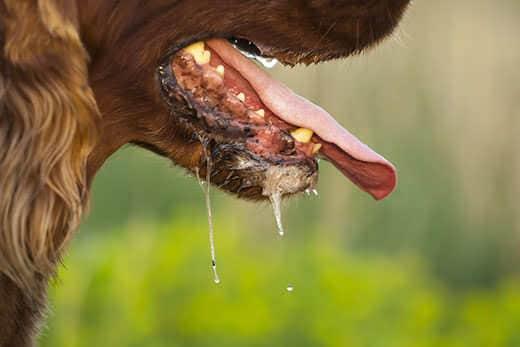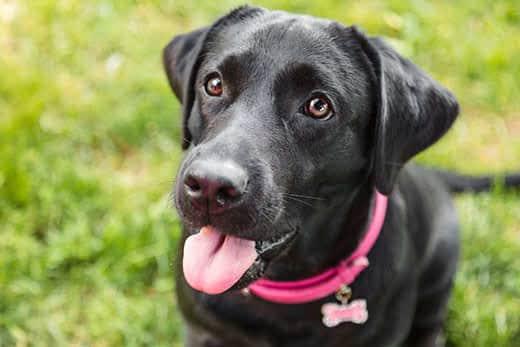
-
Find the right food for your petTake this quiz to see which food may be the best for your furry friend.Find the right food for your petTake this quiz to see which food may be the best for your furry friend.Featured products
 Perfect Digestion Large Breed Puppy Food
Perfect Digestion Large Breed Puppy FoodPrecisely balanced nutrition with Hill's ActivBiome+ prebiotic blend actively contributes to supporting digestive health and overall well-being to help your pet feel their best
Shop Now Perfect Digestion Small & Mini Adult Dog Food
Perfect Digestion Small & Mini Adult Dog FoodHill's Science Plan Perfect Digestion Small & Mini Breed Adult Dog Food with Chicken & Brown Rice supports ultimate digestive well-being & a healthy microbiome.
Shop Now Small & Mini Mature Adult 7+ Dog Food
Small & Mini Mature Adult 7+ Dog FoodHill's Science Plan Small & Mini Breed Mature Adult Dog Food with Chicken is a complete pet food, specially formulated with ActivBiome+ Multi-Benefit Technology.
Tailored nutrition to support graceful ageing in small dogs. Specially made with a synergistic blend of nutrients for energy & vigor.Shop NowFeatured products Kitten Food
Kitten FoodTender chicken chunks in gravy for kittens, with omega-3s for healthy eye & brain development and high-quality protein to support muscle growth. With balanced minerals to promote strong bones & teeth.
Shop Now Hypoallergenic Dry Cat Food
Hypoallergenic Dry Cat FoodHILL'S SCIENCE PLAN Hypoallergenic Adult cat food with egg & insect protein is a complete pet food for adult cat 1–6 years old. It's formulated for cats with delicate skin and stomach, with limited high quality novel protein sources & no grain.
Shop Now Hairball & Perfect Coat Adult Cat Food
Hairball & Perfect Coat Adult Cat FoodHill's Science Plan HAIRBALL & PERFECT COAT Adult cat food with Chicken is specially formulated to effectively help avoid hairball formation in adult cats while promoting a beautiful coat. Thanks to its mix of essential Omega-6 fatty acids, this food benefits the cat's skin and fur keeping them healthy and shiny. Our Advanced Fibre Technology helps reduce hairballs by naturally promoting their passage through the gut. This food is formulated with high-quality protein for a perfectly balanced, great-tasting recipe.
Shop Now -
Dog
- Dog Tips & Articles
-
Health Category
- Weight
- Food & Environmental Sensitivities
- Urinary
- Digestive
- Joint
- Kidney
-
Life Stage
- Puppy Nutrition
- Adult Nutrition
- Senior Nutrition
Cat- Cat Tips & Articles
-
Health Category
- Weight
- Skin & Food Sensitivities
- Urinary
- Digestive
- Kidney
-
Life Stage
- Kitten Nutrition
- Adult Nutrition
Featured articles Understanding Your Pet's Microbiome
Understanding Your Pet's MicrobiomeLearn what a pet's microbiome is, how it contributes to your pet's gut & overall health, and why nutrition is important in maintaining healthy microbiomes.
Read More The Right Diet For Your Pet
The Right Diet For Your PetLearn what to look for in healthy pet food & nutrition, including ingredients, quality of the manufacturer, your pet's age, and any special needs they have
Read More Pet Food Storage Tips
Pet Food Storage TipsWhere you store your cat and dog food can make a big difference in the quality and freshness once it is opened. Here are some common questions and recommendations for optimal storage for all of Hill’s dry and canned cat and dog food.
Read More -


Your dog isn't a stray — they've been vaccinated, and they live a comfortable life with you as their pet parent. But then, one day, you glance over and notice drool and foam coming out of your dog's normally dry mouth. So, why is your dog foaming at the mouth? Read on to learn what may be causing the foam and when you should reach out to your veterinarian.
Benign Causes
If you're tempted to get on the phone with your vet and ask about the foam, you aren't alone. First, what is foam of the mouth, and is it different than drooling? Foaming is the result of panting and drooling at the same time, causing it to be bubbly and form that foamy substance.
Unexpected foaming can be frightening, but it's important to remember that not all excess drooling and foaming is a cause for alarm. In puppies, for example, teething can often lead to drooling. If your dog is less than a year old, keep this in mind if you notice the drooling is gradual. You will likely also see an increase in chewing behaviour associated with teething if it indeed is the culprit.
Some medications may also cause dogs to foam at the mouth if they don't like the taste. This is more often observed among cats, but a number of dogs will do this as well, whether they're taking a less than delicious antibiotic or a monthly heartworm preventative.

Causes that Warrant a Visit to the Vet
If you notice your pup is suddenly producing shoestrings upon shoestrings of drool, this is a clinical sign called ptyalism, or hypersalivation. There are many causes of ptyalism in dogs, ranging in seriousness, including the following:
Rabies
One cause of a dog foaming at the mouth is rabies, what often comes to most people's minds. Rabies is a fatal disease in dogs, and a serious risk to human health as well. For this reason, you should never attempt an oral exam if a dog is foaming at the mouth.
Toxins
Another serious cause of sudden foaming at the mouth is the ingestion of some sort of toxin, something that usually carries a better prognosis than rabies. Whether it's because your pup consumed some form of medication meant for humans, a chemical such as lawn pest control or a no-fly food, intense salivation can appear seemingly out of the blue. If there is any chance your dog may have ingested something out of the ordinary, make sure to head to your nearest vet as soon as possible.
Physical Objects
Physical objects in the mouth can also stimulate increased salivation. The culprit can range from anything such as a broken stick lodged in the pup's oral cavity to a painful tooth. Painful teeth are not often visible, thus requiring a veterinary exam and dental x-rays. Bad breath and heavy tartar buildup is often associated with painful teeth, though not always. An oral tumor might also be causing the salivation. Oral melanomas are the most common malignant oral tumor in dogs, while the gums and inside of the mouth are the most common sites for canine melanomas. They may appear as swellings along the gums and may cause facial swelling. They may be black or red and may appear infected or bloody. Bad breath can also be associated with melanomas.


Tasty Tips

Motion Sickness
Motion sickness and anxiety can also cause increased salivating in dogs. Some dogs pant excessively when they seem to be anxious. But, remember, if excessive panting is noted on a warm day or an abnormal color of the gums is observed, seek veterinary care immediately as heatstroke is a possibility.
Gastrointestinal Issues
An upset gastrointestinal tract can also be responsible for increased salivation in dogs, usually due to nausea or vomiting.
Why is My Dog Foaming at the Mouth: Should I Seek Treatment?
If you believe your dog's excess salivation may be linked to one of the conditions above, seek veterinary treatment right away. Your vet will conduct a physical exam, and in many cases, they will be able to narrow down the cause of the hypersalivation rather quickly. Dental x-rays to evaluate their teeth and/or basic bloodwork may be recommended. If toxin ingestion is a concern, your vet may need to call the poison control center. If you know your pet did ingest something they weren't supposed to, bring all packaging with you to the vet for their review.
Regardless of the cause, addressing excess drooling quickly is essential. Even in the least urgent of cases, continued drooling may lead to an infection of the skin around the mouth if it isn't responded to promptly, according to Merck Veterinary Manual. Treatment typically includes clipping of the fur around the mouth and regularly cleaning of the area with a medicated pad or wipe.
Now that you have some possible answers to the sometimes-scary question of why your dog is foaming at the mouth, you can better care for your beloved furry friend. Remember, if you have any questions or causes for concern, give your local vet a call.


Dr. Laci Schaible is a small animal veterinarian, veterinary journalist, and a thought leader in the industry. She received her Doctor of Veterinary Medicine from Texas A&M University and her Masters in Legal Studies from Wake Forest University.
Related products

Hill's Science Plan Perfect Digestion Small & Mini Breed Adult Dog Food with Chicken & Brown Rice supports ultimate digestive well-being & a healthy microbiome.

Hill's Science Plan Small & Mini Breed Mature Adult Dog Food with Chicken is a complete pet food, specially formulated with ActivBiome+ Multi-Benefit Technology.
Tailored nutrition to support graceful ageing in small dogs. Specially made with a synergistic blend of nutrients for energy & vigor.

Hill's Science Plan Large Breed Adult Dog Food with Lamb & Rice is a complete pet food, specially formulated with ActivBiome+ Multi-Benefit Technology.
This food is specifically designed to fuel the energy needs of large breed dogs during the prime of their life.

Precisely balanced nutrition with Hill's ActivBiome+ prebiotic blend actively contributes to supporting digestive health and overall well-being to help your pet feel their best
Related articles

Discover how the field of dog science is giving us more and more insights into the inner workings of our furry best friends.

Learn about snake bites on dogs, including clinical symptoms to look for, what to do if you think your dog was bitten, and treatment & prevention options.

Dog obesity is a significant problem - learn more about helping your dog become trimmer and healthier through improved nutrition.

Discover the causes, signs, and treatments of kidney disease in dogs and find methods of supporting your dog's kidney health. Learn more at Hill's Pet South Africa.

Put your dog on a diet without them knowing
Our low calorie formula helps you control your dog's weight. It's packed with high-quality protein for building lean muscles, and made with purposeful ingredients for a flavorful, nutritious meal. Clinically proven antioxidants, Vitamin C+E, help promote a healthy immune system.
Put your dog on a diet without them knowing
Our low calorie formula helps you control your dog's weight. It's packed with high-quality protein for building lean muscles, and made with purposeful ingredients for a flavorful, nutritious meal. Clinically proven antioxidants, Vitamin C+E, help promote a healthy immune system.

